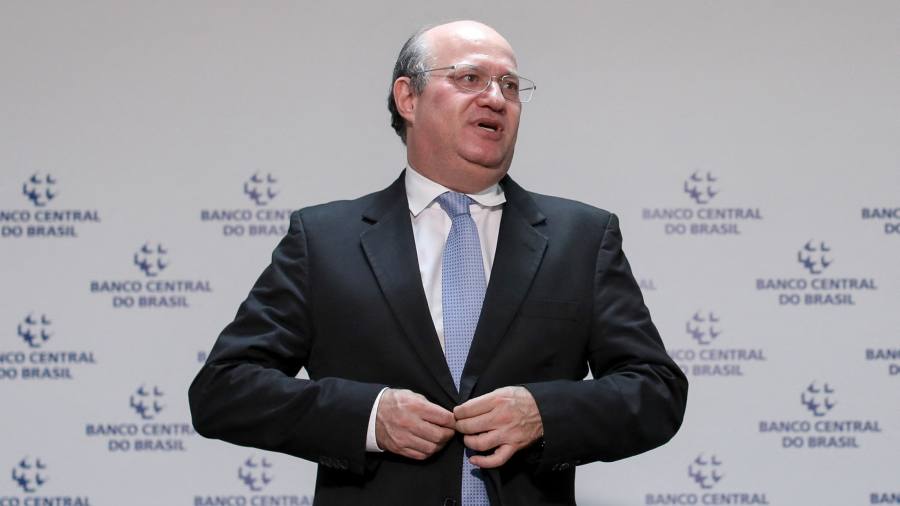
Brazilian economist and former central bank head Ilan Goldfajn has won the race to lead Latin America’s most important development bank, after Argentina withdrew its own candidate and the US swung behind him.
Goldfajn trounced his main rivals from Chile and Mexico for the presidency of the Inter-American Development Bank (IDB) on the first round of voting, taking around 80 per cent, according to sources close to the process. His appointment was later confirmed by the IDB.
Argentina’s president Alberto Fernández agreed at the last minute to drop his candidate, international economic relations official Cecilia Todesca, and back Goldfajn in return for a senior role for an Argentine at the bank, according to a source close to the process.
The IDB arranged funding of more than $23bn to Latin America and the Caribbean last year and its president is chosen by the 48 shareholder countries. The US wields the most votes, with 30 per cent, followed by Brazil and Argentina with 11.4 per cent each, and Mexico with 7.3 per cent.
Goldfajn had taken leave from his current role as the head of the IMF’s Western Hemisphere department to run for the post. He faces big challenges at the Washington-based IDB, where senior staff are still bruised from the turmoil surrounding the tenure of the previous president, who was fired in September.
Cuban-American Mauricio Claver-Carone, a Trump nominee, was removed by the IDB’s governors after an external investigation found he had probably violated ethics rules by conducting a relationship with a subordinate and giving her two large pay rises. Claver-Carone and the woman both denied a relationship.
Goldfajn, 56, was born in Israel, earned a doctorate in economics from MIT and will be the IDB’s first Brazilian president. He presented himself as an apolitical, technocratic choice who would lead the bank in a transparent and consensual way after the conflicts of the Claver-Carone era.
“We need to motivate back the institution,” he told the Financial Times in an interview last week. He added that if he won, his top priorities would be to use the bank’s firepower to address poverty, inequality, food insecurity, climate change and improve the region’s financial infrastructure.
“This needs to be an evidence and data-oriented bank, looking at when projects are effective,” Goldfajn said. “You need to look at the numbers. I like data, I like to look at the evidence.”
Internal IDB evaluations suggested that the efficiency of existing lending needed to be improved and the balance sheet optimised, he added. “It’s possible to do more with the same capital.”
Washington had favoured Goldfajn from an early stage because of his strong experience and management credentials. But there had been concern that his chances might be affected by a lack of support from Brazil’s leftwing president-elect, Luiz Inácio Lula da Silva.
Goldfajn was nominated by the government of outgoing hard-right president Jair Bolsonaro and two senior figures close to Lula had publicly questioned the choice. They suggested that the IDB election should be postponed until after Lula’s inauguration next year to allow the incoming Brazilian leader to put forward his own candidate, an idea which was swiftly rejected by the US.